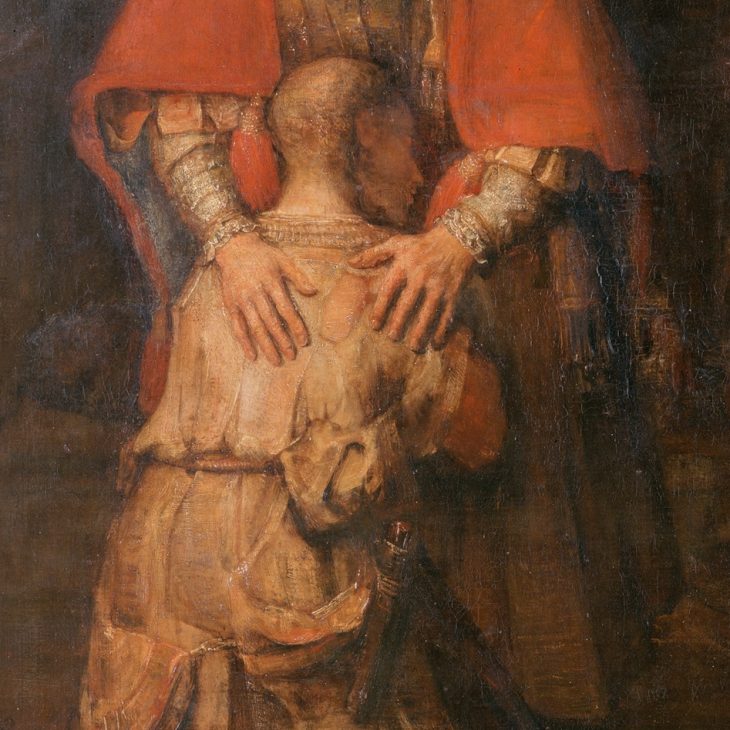The Prodigal Son: A Reflection For Father’s Day
June 19, 2020

Growing up as a Roman Catholic, Father’s Day meant going to church in the morning and then coming home to do chores so my dad could sit on the porch with his friends and talk about life and drink a beer before they fired up the grill and we had barbecue for dinner. I’d like to say I did the chores perfectly without any whining or complaining, but now, that I’m a father of two daughters, I know I whined and complained through each chore and task. I know we had arguments and he sent me to my room for a time out more often than not. However, at the end of the day, we would always find ourselves around the table for a shared meal with family and friends to honor the fathers in our community. These traditions still hold true to me and my daughters and our community of friends and neighbors today.
Also part of my Father’s Day tradition is reading the Parable of the Prodigal Son. Liturgically speaking, this scripture reading falls during Lent, but its message brings me back to its themes every year to ground me and challenge me on how to be a better father and community member.
The parable, found in Luke’s Gospel (15:11-32), tells the story of a father who bestows his younger son with his inheritance so that he might go and be successful on his own. The young man spends the inheritance poorly and returns home penniless and broken. Instead of disowning his younger son, the father embraces him and calls for a feast to celebrate his son’s return. There’s an older brother in the story, too, who struggles to understand his father’s excitement for the returned son and complains that no feast was ever held for him.
Like all parables, it is rich with meaning and tradition and scholars have reflected on it for centuries. I’m not a scriptural scholar, but the reason this parable is so central to my faith and spiritual journey is because throughout my life, I have been all three characters in the parable, sometimes in the same day.
I’ve been the younger son, who has had to admit to my sins and failures, sometimes to the people I care for the most. I’ve been the elder son, who has judged people unfairly and grown cynical and smug in my piety. I’ve been the father, who hugs my daughters and tells them I love them even when they make really poor decisions.
And this Father’s Day, I’m challenged by them again. With a national reckoning on race and police brutality ever present, how can I kneel before those who I have wronged and continue to wrong because of my choices, or lack thereof, and ask for their forgiveness? How do I hold back judgement for those seeking forgiveness and see their actions as honest and true? Most importantly, how can I forgive those who have committed the most horrific atrocities to their fellow citizens and forgive them for their sins while holding them accountable to making systemic changes so that we might move forward as a stronger nation?
These societal issues existed in my youth. They existed when Jesus first spoke the words of this parable. There are no easy solutions either, but through the values of forgiveness, reconciliation, and humility, there is a way forward. My father demonstrated these values during my childhood throughout all my mistakes by constantly reminding me of his love for me and volunteering in the community on a variety of projects.
For me, I always make sure to tell my daughters I love them especially after a day fraught with bad decisions and arguments. I stress the importance of making mistakes as they try new things. Finally, I read to them and elevate stories with diverse characters and from diverse authors so they understand the richness of our community and the strength that comes with diversity.
Share
Related Articles
American Civic Life
American Civic Life
We Commemorate, We Commit: Out of Catastrophe, a Conversation on Connection and Repair
American Civic Life
Is This a Time for Bridgebuilding? 5 Leaders in Conversation



